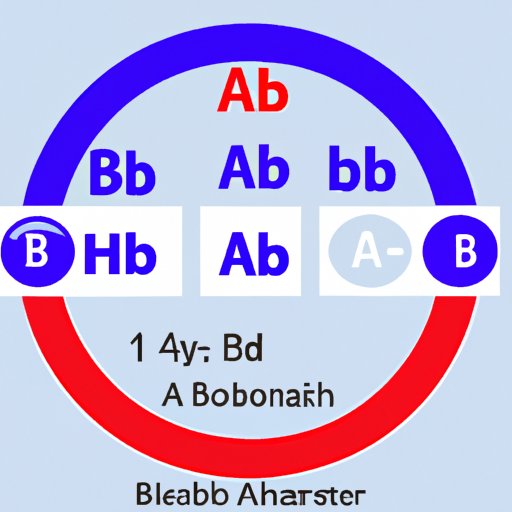Introduction
Your blood type is an important piece of information that you should know about yourself. It can be used in medical situations and can even provide insight into your genetic makeup. But how do you know what blood type you are? In this article, we will explore the basics of blood types, discuss the tests used to determine blood type, explain how to get tested, highlight the benefits of knowing your blood type, and provide resources for learning more.

Explain the Basics of Blood Types and What They Mean
Your blood type is determined by two factors: ABO blood types and the Rh factor. ABO blood types are based on the presence or absence of certain antigens, which are proteins found on the surface of red blood cells. The four main ABO blood types are A, B, AB, and O. Additionally, you may be either positive or negative for the Rh factor, which is determined by a protein called the D antigen.
People with type A blood have the A antigen on their red blood cells, while people with type B have the B antigen. People with type AB have both antigens present, and those with type O have neither. When it comes to the Rh factor, if you have the D antigen, you are Rh-positive. If you don’t have it, you are Rh-negative.

Discuss the Tests Used to Determine Blood Type
There are two main tests used to determine your blood type: a blood sample test and a finger prick test. The blood sample test requires a small sample of blood to be taken from your arm or finger. This sample is then mixed with reagents that contain antibodies specific to each blood type. Depending on which antibodies react with the sample, your blood type can be determined.
The finger prick test also uses a small sample of blood, but instead of mixing it with reagents, it is placed on a special card containing antibodies specific to each blood type. If the sample reacts with any of the antibodies, your blood type can be determined.
Describe How to Get Tested for Your Blood Type
If you want to get tested for your blood type, there are a few options available. At-home tests are one option, and they use a small sample of blood taken from your finger. The sample is then placed on a special card containing antibodies specific to each blood type. If the sample reacts with any of the antibodies, your blood type can be determined.
You can also get tested at a clinic or hospital. The process is similar to the at-home test, but it may involve taking a larger sample of blood from your arm. The sample is then mixed with reagents containing antibodies specific to each blood type. Depending on which antibodies react with the sample, your blood type can be determined.

Explain the Benefits of Knowing Your Blood Type
Knowing your blood type can provide many health benefits. For example, it can help doctors identify potential issues with transfusions, as incompatible blood types can cause serious reactions. Additionally, some research suggests that having certain blood types may increase your risk for certain diseases, such as cardiovascular disease and diabetes.
Knowing your blood type can also provide valuable insight into your genetic makeup. For example, if you know that both of your parents have type A blood, you can infer that you have a higher chance of also having type A blood.
Highlight Resources for Learning More About Blood Types
If you want to learn more about blood types, there are several online resources available. The American Red Cross has a wealth of information on blood types, including how to donate blood and what to do in case of a medical emergency. The National Library of Medicine also has a section dedicated to blood types and related topics.
In addition to online resources, there are also books and publications available that can provide useful information on blood types. For example, “Understanding Your Blood Type: How to Stay Healthy and Avoid Illness” by Dr. David M. Stoll is a comprehensive guide to understanding your blood type and using it to stay healthy.
Conclusion
Knowing your blood type is an important part of understanding your health and genetics. There are several tests available to determine your blood type, including at-home tests and tests done at a clinic or hospital. Knowing your blood type can provide health benefits, such as helping doctors identify potential issues with transfusions, and can also provide insight into your genetic makeup. There are many online resources and books available to help you learn more about blood types.
By understanding your blood type, you can make informed decisions about your health and gain valuable insight into your genetics. With the right resources and knowledge, you can take control of your health and learn more about yourself.
(Note: Is this article not meeting your expectations? Do you have knowledge or insights to share? Unlock new opportunities and expand your reach by joining our authors team. Click Registration to join us and share your expertise with our readers.)
